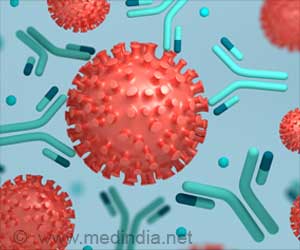The aim of the national nutrition week is to motivate healthy eating practices and avoid the risk of disease, as well as, to stave off malnutrition.
- Every year in India, September 1 - 7 is observed as the National Nutrition Week.
- The importance of food, choosing the right kind of foods that promote health and awareness on balanced diet, healthy eating is the main focus.
- While good eating habits can make you free from diseases, poor nutrition can leave you tired, stressed, and may increase the risk of obesity, diabetes and hypertension.
Why is Nutrition Important?
Nutrition is the study of nutrients and its interaction with the body to help in growth, repair of body tissues and maintenance. The food we eat contains nutrients which are critical for health. So when we talk about nutrition, it deals with food, the nutrients and the daily diet.
Food can make or break a person. A well balanced diet ensures nutrient sufficiency to the body and protects from various diseases. On the other hand, a diet deprived of nutrients increases the risk of diseases and affects the quality of life. Nutrition through a healthy diet is not a big deal, and so making sure that we eat right is important.
How Do We Eat Healthy?
- The first step in healthy eating is shopping. Purchasing the food that should go on the plate needs attention. When we have the right ingredients to cook, the chances for a healthy meal is more. When you go out to the market or the grocery store, have a meal before you leave home. Shopping with a growling tummy can make you buy foods that are high in salt, fat and sugar. So make a list of the items to be bought. Make sure that you buy fruits, vegetables in a variety of colors.
- How you cook is important! Choose to bake, grill, boil, stir fry instead of deep frying. Use spices and herbs to add flavor, instead of adding more salt. Choose lean meat and use tomato-based sauces instead of cream. Balance your meal with pulses and vegetables.
- Finally, the way you eat matters. Space out your meals throughout the day instead of skipping any meal as it may increase the chances of gorging on food later during the day.
Chew the food, savor the flavors as it is one way of telling your stomach how much more you will need to eat.
Use the Food Guide Pyramid
The food guide pyramid is a pictorial representation of the various food groups and the quantities in which it should be consumed. The pyramid helps choose from a variety of foods to get the ideal amount of nutrients required for the body.
Cereals - bread, rice, pasta, are all from grains. The ideal intake of cereals in a day would be 6 - 11 servings depending on their physical activity and body weight.
Fruits and vegetables - The next group includes all the fruits and vegetables that provide vitamins, minerals and fiber. Three to 5 servings of vegetables and 2 - 4 servings of fruits everyday is essential.
Milk, dairy products and poultry - This group of foods provide protein and calcium, iron and zinc. Two - three serving of milk, yogurt and cheese; 2 - 3 serving of meat, poultry, dry fruits, egg and nuts is recommended.
Fats and oils - The top of the pyramid has oil, butter, salad dressing, cream, margarine, sugars, candies and sweets which provide calories and fat than any other nutrient. They must be used sparingly.
Now, that it is clear that food is the best preventive medicine for any disease, or to treat diseases, it is time to focus on what we eat, every single time. Practice is the key to eat a balanced meal. Just remember, the fork in your hand has the ability to put away the risk of malnutrition and the risk of diseases due to over feeding. Go ahead and practice healthy eating. It’s as simple as food.
Reference:
- Why nutrition is important - (https://www.nhmrc.gov.au/health-topics/nutrition)
- Nutrition - (http://www.eatright.org/resources/food/nutrition)
- The risks of poor nutrition - (http://www.sahealth.sa.gov.au/wps/wcm/connect/public+content/sa+health+internet/healthy+living/is+your+health+at+risk/the+risks+of+poor+nutrition)















